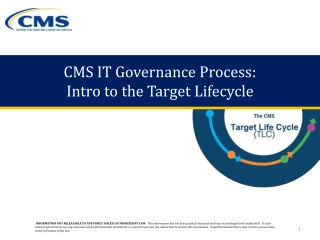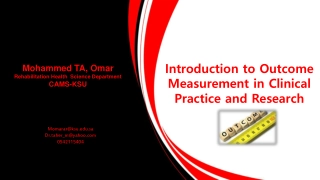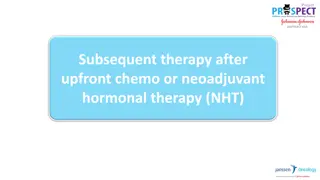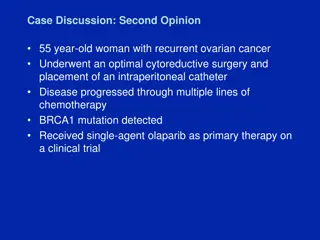
Addressing Current Questions and Emerging Considerations with PARP Inhibitors in Ovarian Cancer Management
Learn about the latest insights on the use of PARP inhibitors in ovarian cancer management, as discussed by leading experts during a CME event. Moderated by Neil Love, MD, the session covered testing algorithms, decision-making for patients with BRCA mutations, and disclosures related to commercial interests.
Download Presentation

Please find below an Image/Link to download the presentation.
The content on the website is provided AS IS for your information and personal use only. It may not be sold, licensed, or shared on other websites without obtaining consent from the author. If you encounter any issues during the download, it is possible that the publisher has removed the file from their server.
You are allowed to download the files provided on this website for personal or commercial use, subject to the condition that they are used lawfully. All files are the property of their respective owners.
The content on the website is provided AS IS for your information and personal use only. It may not be sold, licensed, or shared on other websites without obtaining consent from the author.
E N D
Presentation Transcript
Please note, these are the actual video-recorded proceedings from the live CME event and may include the use of trade names and other raw, unedited content.
Addressing Current Questions and Emerging Considerations with the Use of PARP Inhibitors in the Management of Ovarian Cancer Sunday, March 17, 2019 11:00 AM 12:30 PM Honolulu, Hawaii Moderator Neil Love, MD Faculty Robert L Coleman, MD Professor Jonathan A Ledermann Stephanie Lheureux, MD, PhD Kathleen Moore, MD
Disclosures for Moderator Neil Love, MD Dr Love is president and CEO of Research To Practice. Research To Practice receives funds in the form of educational grants to develop CME activities from the following commercial interests: AbbVie Inc, Acerta Pharma A member of the AstraZeneca Group, Adaptive Biotechnologies, Agendia Inc, Agios Pharmaceuticals Inc, Amgen Inc, Ariad Pharmaceuticals Inc, Array BioPharma Inc, Astellas Pharma Global Development Inc, AstraZeneca Pharmaceuticals LP, Bayer HealthCare Pharmaceuticals, Biodesix Inc, bioTheranostics Inc, Boehringer Ingelheim Pharmaceuticals Inc, Boston Biomedical Pharma Inc, Bristol-Myers Squibb Company, Celgene Corporation, Clovis Oncology, Daiichi Sankyo Inc, Dendreon Pharmaceuticals Inc, Eisai Inc, Exelixis Inc, Foundation Medicine, Genentech, Genmab, Genomic Health Inc, Gilead Sciences Inc, Guardant Health, Halozyme Inc, ImmunoGen Inc, Incyte Corporation, Infinity Pharmaceuticals Inc, Ipsen Biopharmaceuticals Inc, Janssen Biotech Inc, administered by Janssen Scientific Affairs LLC, Jazz Pharmaceuticals Inc, Kite Pharma Inc, Lexicon Pharmaceuticals Inc, Lilly, Loxo Oncology, Merck, Merrimack Pharmaceuticals Inc, Myriad Genetic Laboratories Inc, Natera Inc, Novartis, Pfizer Inc, Pharmacyclics LLC, an AbbVie Company, Prometheus Laboratories Inc, Puma Biotechnology Inc, Regeneron Pharmaceuticals Inc, Sandoz Inc, a Novartis Division, Sanofi Genzyme, Seattle Genetics, Sirtex Medical Ltd, Spectrum Pharmaceuticals Inc, Taiho Oncology Inc, Takeda Oncology, Tesaro, Teva Oncology and Tokai Pharmaceuticals Inc.
Agenda MODULE 1: Current Testing Algorithms and Decision-Making for Patients with Newly Diagnosed Ovarian Cancer and an Identified BRCA Mutation Dr Moore MODULE 2: Role of PARP Inhibition in the Management of Relapsed Ovarian Cancer Prof Ledermann MODULE 3: Prevention, Recognition and Management of PARP Inhibitor-Associated Side Effects Dr Coleman MODULE 4: Investigational Applications of Approved PARP Inhibitors; Other PARP Inhibitors in Clinical Development Dr Lheureux
Consulting Oncologists Evelyn Brosnan, MD, MBA Chapel Hill, North Carolina Heidi E Godoy, DO Albany, New York Adrianne Mallen, MD Tampa, Florida G Richard Polkinghorn, MD Augusta, Maine
These drugs rely on the principle of so-called synthetic sickness, which occurs when the deficiency of two or more cellular mechanisms lead to cell death, whereas loss of only one cellular mechanism does not. The exact mechanism for synthetic sickness with PARP inhibitors is still being investigated, although it has been extensively described LaFargue, et al. Lancet Oncol 2019; 20: e25-28
In addition, PARP1 has shown to have an important role in maintaining the transcription of circadian genes, with PARP1 inhibition leading to a disconnect in key circadian rhythm transcriptional components. These molecular studies might help to explain some of the neurological symptoms reported by patients on PARP inhibitors. LaFargue, et al. Lancet Oncol 2019; 20: e25-28







